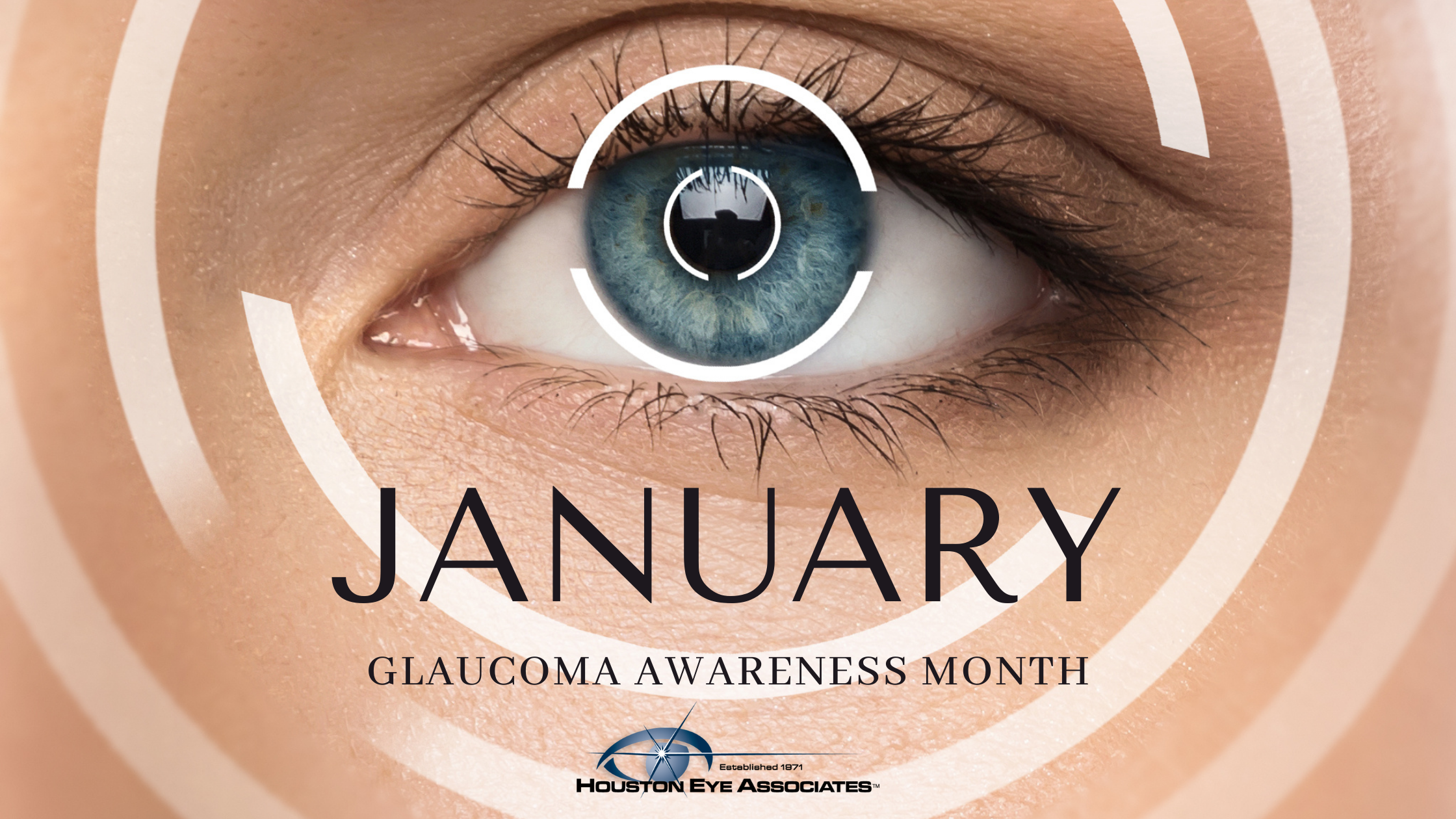Did You Know?
Glaucoma is a leading cause of irreversible blindness in the United States. Glaucoma has no noticeable symptoms in its early stages, and vision loss progresses at such a gradual rate that people affected by the condition are often unaware of it until their sight has already been compromised. During Glaucoma Awareness Month in January, the American Academy of Ophthalmology advises the public that the best defense against developing glaucoma-related blindness is by having routine, comprehensive eye exams.
What is Glaucoma
Glaucoma is a disease of the eye that can cause vision loss if left untreated. It is one of the most serious eye disorders and approximately 2.25 million Americans 45 years or older have glaucoma. It is estimated that between 84,000 and 116,000 of them have become blind from glaucoma. The incidence of glaucoma increases with age.
Glaucoma is usually caused by increased pressure in the eye, which causes mechanical damage to the optic nerve and affects the optic nerve’s blood flow. This damage to the optic nerve will cause vision loss. There are two main types of glaucoma, open-angle glaucoma (the most common form) and angle-closure glaucoma (5% of glaucoma cases).
Initially, there are no symptoms in open-angle glaucoma. The disease occurs slowly and no one certainly knows how fast it will progress. Often, patients first appear to the doctor after visual field loss has already occurred and require constant medical attention to keep from losing the remaining visual field. Angle-closure glaucoma is rare but is more noticeable. The pressure in the eye increases rapidly and causes severe eye pain, blurred vision, and headache.
Glaucoma mainly occurs in adults over the age of 40, but glaucoma can affect children also. Risk factors for glaucoma include a family history of the disease, African American descent, highly myopic (near-sighted) patients, and diabetic patients.
Yearly examinations with your ophthalmologist will be sufficient to check for glaucoma. If you have any risk factors for glaucoma your ophthalmologist will perform a workup for glaucoma. The work-up includes checking your eye pressure with a tonometer, checking for damage to the optic nerve, and checking for damage to the drainage system in the eye.
Glaucoma is usually treated with medications (eyedrops or tablets). They work by decreasing the eye pressure by either decreasing fluid production in the eye or increasing the outflow of fluid from the eye. If medical management is not controlling the eye pressure other treatment options are available. They include laser surgery and intraocular filtration surgery. Your doctor will decide which treatment option is right for you.
Glaucoma is a chronic disease and needs to be regarded as such. It is important to keep all appointments with your doctor and to take medication on time. Once diagnosed with glaucoma, patients will need lifelong care to maintain good vision. It is important to understand that glaucoma cannot be cured but can be controlled.
Glaucoma Treatment Options
There are several different options used to treat glaucoma. These options will not reverse any vision loss but they can help to slow or stop future damage. Medicated eye drops, a laser procedure, or a surgical procedure can be used to lower the pressure within the eye. Lowering a patient’s pressure can help to stop any further damage to their eyes. Determining which treatment plan is best will depend on several factors, including the type of glaucoma and how advanced the glaucoma is. Our Physicians will evaluate and decide which treatment plan will work best for each patient individually. It is important to understand that glaucoma cannot be cured, but can be controlled.
Glaucoma Surgery and Laser Procedures
It is important to speak with a Glaucoma Specialist on which treatment option best suits your individual need. Not every treatment is appropriate for every patient. If you or a loved one have been diagnosed with glaucoma, we urge you to speak with one of our experienced glaucoma doctors about what the best course of action will be.
Our Promise
At Houston Eye Associates, we firmly believe in providing our patients with the highest quality care when they visit our clinics. Call us today to book your appointment at 713-668-6828 or schedule your appointment online and our Scheduling Department will reach out to you as soon as possible.
Glaucoma Specialists:
Come SEE the Difference at the Houston Eye Associates!


.webp?width=318&height=179&name=Final%20Glaucoma%20Specialists%20(Twitter%20Post).webp)